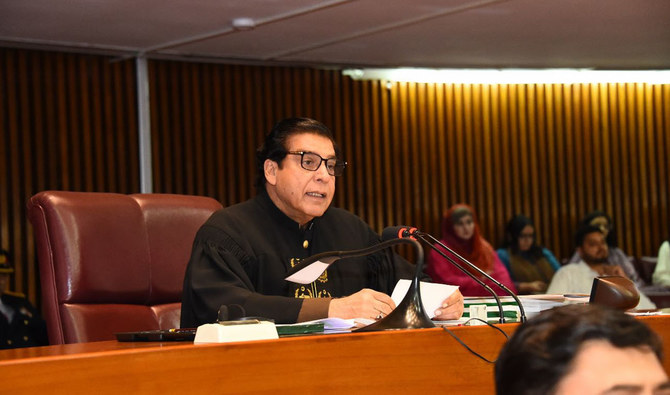ISLAMABAD: National Assembly Speaker Raja Pervez Ashraf ruled out the possibility of compromising on parliamentary supremacy on Wednesday after a senior lawmaker urged him to summon the country’s chief justice and ask him why he wanted record of the house proceedings related to a new law limiting his powers.
The uproar in the National Assembly began on Tuesday after an eight-member apex court bench instructed the attorney general to share the parliamentary proceedings while hearing petitions challenging the Supreme Court (Practice & Procedure) Bill, 2023.
The law limits the power of the chief justice of Pakistan, depriving him of the authority to solely initiate public interest litigation on his own through suo moto proceedings. It also dilutes his administrative power to constitute benches and determine their composition and involves more judges in the process.
Speaking on the floor of the house, former prime minister Shahid Khaqan Abbasi, who belongs to the ruling Pakistan Muslim League-Nawaz (PML-N) party, asked the National Assembly speaker to form a committee to debate the matter.
“This is not a small matter since it relates to the supremacy and sovereignty of the house,” he said while issuing a brief statement.
“The chief justice should be asked to come here and tell why he has asked for the record,” he added.
The speaker said he was aware of the sentiments of members of parliament while asking them to bring a resolution for the consideration of the house.
“It is a very serious issue,” he agreed. “There can be no compromise on the supremacy and sovereignty of this house. I can assure you of that as the custodian of the house.”
Tensions have been mounting between the government and the top court since the superior judiciary took up a case of election delay in Punjab and Khyber Pakhtunkhwa following the dissolution of the provincial legislatures by former prime minister Imran Khan and his allies in January.
The top court instructed the country’s election commission to hold the Punjab polls on May 14 and ordered the central bank to release the required funds for the purpose.
However, the government maintained the Supreme Court had gone beyond its constitutional mandate by issuing the rulings which challenged the principles of parliamentary supremacy and separation of powers.
Pakistan’s defense minister Khawaja Asif also spoke during the National Assembly debate on Wednesday, saying it was unfortunate that two constitutional institutions had come face to face with each other.
“We are not against the court but we are against this territorial trespassing,” he said.
Asif maintained whenever the constitution had been violated by military rulers, their actions were endorsed by the courts.
He added it was time Pakistan’s parliament held judges, “who aided and abetted constitutional violations,” accountable.
















